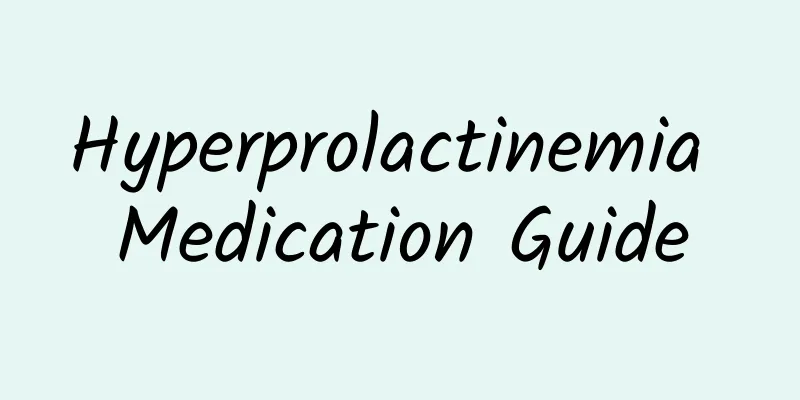Is dysmenorrhea related to prostate hormones?

|
Dysmenorrhea is closely related to prostate hormones, and symptoms can be effectively relieved through drug treatment and lifestyle adjustments. Prostate hormones are key substances that cause uterine contractions and inflammatory responses, and excessive secretion can cause dysmenorrhea. In view of this mechanism, non-steroidal anti-inflammatory drugs, hormone therapy, and Chinese medicine conditioning can be used to reduce the secretion of prostate hormones, while hot compresses, moderate exercise, and dietary adjustments can be combined to relieve pain. 1. The mechanism of action of prostate hormone in dysmenorrhea. Prostate hormone is a type of lipid mediator secreted by the endometrium. Its main function is to promote the contraction of uterine smooth muscle and help discharge menstrual blood. However, excessive secretion of prostate hormone can cause excessive contraction of the uterus, causing ischemia and pain. At the same time, prostate hormone can also stimulate inflammatory response and aggravate the symptoms of dysmenorrhea. Studies have shown that the level of prostate hormone in the endometrium of patients with dysmenorrhea is significantly higher than that of normal people, especially prostaglandin E2 and prostaglandin F2α, which are the main substances causing dysmenorrhea. 2. Drug treatment is an important means to relieve dysmenorrhea. Non-steroidal anti-inflammatory drugs (NSAIDs) such as ibuprofen, naproxen and aspirin can inhibit the synthesis of prostate hormones, thereby reducing uterine contractions and inflammatory responses. Hormone therapy, such as oral contraceptives, can reduce endometrial hyperplasia by regulating hormone levels, thereby indirectly reducing the secretion of prostate hormones. Traditional Chinese medicine conditioning, such as angelica, Chuanxiong and motherwort, has the effects of promoting blood circulation, removing blood stasis, regulating menstruation and relieving pain, and can relieve dysmenorrhea symptoms. 3. Lifestyle adjustment is also important for relieving dysmenorrhea. Hot compress is a simple and effective method that can relieve pain by promoting local blood circulation. Moderate exercise such as yoga, walking and swimming can relax muscles, improve pelvic blood circulation, and reduce the accumulation of prostate hormones. Dietary adjustments such as increasing foods rich in Omega-3 fatty acids such as deep-sea fish and flax seeds can inhibit the synthesis of prostate hormones, while reducing the intake of caffeine and alcohol to avoid aggravating dysmenorrhea. The relationship between dysmenorrhea and prostate hormones is clear, and symptoms can be effectively relieved through drug treatment and lifestyle adjustments. Paying attention to the secretion mechanism of prostate hormones and combining drug and non-drug interventions can help patients better manage dysmenorrhea and improve their quality of life. |
<<: What causes cervicitis and how to treat it
>>: What are the causes of menstrual disorders?
Recommend
Which is more harmful, induced abortion or artificial abortion?
Which is more harmful, induced abortion or artifi...
How long does it take to get pregnant again after an abortion?
After an artificial abortion, women need a certai...
Is the Xiaomi suppository effective in treating cervical erosion? How to treat cervical erosion?
Cervical erosion is a common gynecological diseas...
[Video version] Chicken breast is a must-eat for losing weight. Here are 4 steps to prepare it so it won’t be dry and tasteless!
When it comes to what to eat to lose weight, buil...
Is vulvar leukoplakia vitiligo?
Vulvar leukoplakia, also known as female vulvar l...
What are the symptoms of ovarian cysts and how to detect them
How to detect the symptoms of ovarian cysts? 1. T...
Your menstrual cycle is different every time
Your menstrual cycle is different every time The ...
What are the good methods for nursing patients with endometrial tuberculosis?
Although endometrial tuberculosis is divided into...
Why do women need to undergo B-ultrasound examinations before and after abortion? What are the functions of B-ultrasound examinations after abortion?
Why do we need to do B-ultrasound examination bef...
What to do if you have adenomyosis and brown blood in early pregnancy
What should I do if I have brown blood in the ear...
Common causes of adnexitis
Among all kinds of gynecological inflammatory dis...
Here are some ways to treat dysmenorrhea
Dysmenorrhea is a common problem for women during...
What are the common symptoms of uterine fibroids?
Typical symptoms of uterine fibroids include abno...
What symptoms should you pay attention to for uterine fibroids
Uterine fibroids are a common disease among women...
What causes vaginitis?
Among gynecological diseases, vaginitis is a majo...









